Simon Dikau

Simon joined the Grantham Research Institute on Climate Change and the Environment in May 2019. He is working as a Distinguished Policy Fellow on central banking and financial supervision in the context of environmental degradation and the economic transition to sustainable growth and economies. Simon is the Founder and Global Director of the LSE Centre for Economic Transition Expertise, which was established in 2024 as a specialised research and policy centre to provide the technical analysis, training and assistance required to deliver sustainable, inclusive and resilient economies and financial systems. Simon oversees the international engagement of CETEx with research stakeholders as well as central banks, supervisors and finance ministries. He was also the Research Director of the INSPIRE initiative, a global research network and stakeholder of the Network of Central Banks and Financial Supervisors for Greening the Financial System (NGFS).
Background
Simon obtained a Ph.D. in Economics from SOAS University of London with a thesis on “Central Banking and Economic Development”, which focused on the theoretical, historical and empirical relationship between central banking, economic growth and sustainable development. He holds an MSc in Development Studies from SOAS University of London and a BSc in Economics from the University of Bonn. Simon has worked for international think tanks and with central banks on topics of sustainable finance, central banking, financial stability and emerging markets.
Research interests
- Central banking and monetary economics
- Sustainable economic development and finance
- Financial regulation and climate-related risk
Research
Research - 2024
The article outlines steps towards incorporating transition plans into prudential policy, thereby enabling supervisors to effectively use transition plans as a forward-looking instrument to better manage and overcome some of the challenges associated with climate transition risks. Read more

Research - 2023
This paper empirically estimates the material demand requirements for so-called ‘transition-critical materials’ (TCMs) implied under two climate scenarios and finds potentially serious supply ‘bottlenecks’ for three materials – copper, lithium and nickel – which are exacerbated if the transition is delayed. Read more

Research - 2022
This book chapter discusses the role that central banks and financial supervisors (CBFSs) can play in scaling up sustainable finance and investment. Read more
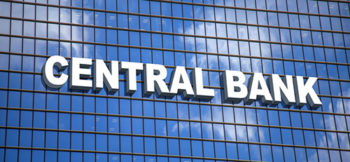
This book chapter highlights the opportunities as well as the risks of digital finance in mobilising capital to support sustainable development in emerging markets. Read more

Research - 2021
This article investigates the use of one specific monetary policy tool, namely window guidance, by the Peoples’ Bank of China (PBC) and the China Banking Regulatory Commission (CBRC) to encourage financial institutions to expand credit to sustainable activities and curb lending to heavy-polluting industries. Read more

Investigating the use of the green monetary policy tool ‘window guidance’ in China, the authors draw lessons for the design of green finance policies for other countries that seek to enhance sustainable finance and mitigate climate change and related risks. Read more

This article examines how addressing climate-related risks and supporting mitigation and adaptation policies fit into central bank mandates. We conduct... Read more

Policy
Policy - 2025
To guide policymakers as they face the challenge of taking financial and economic policy decisions for the net zero transition, this CETEx report develops a design approach based on ‘building blocks’. Read more

Policy - 2024
This report from CETEx (the Centre for Economic Transition Expertise) reviews existing literature on climate change and price stability, considers the risk posed by more persistent climate-related inflationary pressure and explores the trade-offs, challenges and implications for monetary policy. Read more

This CETEx report outlines the challenges that the EU faces in securing a sufficient and reliable supply of critical minerals needed for a timely and orderly low-carbon transition. Read more

This essay reflects on the limitations of the exclusive focus on the climate-related financial risk (CRFR) approach in shaping central banks’ engagement with climate change and a green transition. Read more

This response consists of a written submission by CETEx to the Basel Committee on Banking Supervision (BCBS) consultation on a disclosure framework for climate-related financial risk (CRFR). Read more

This policy insight seeks to evaluate China’s role in supply chains for renewable energy technologies and how the country can accelerate the energy transition in other countries, particularly those in Southeast Asia. Read more

Policy - 2023
This policy insight presents an initial conceptual framework on the application of climate scenario analysis and associated design requirements, focusing on the need for a clear purpose. Read more
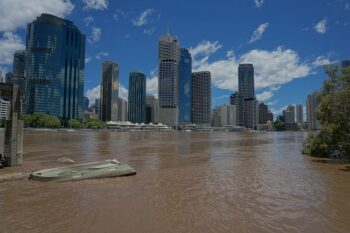
In order to assess these imbalances, Miller et al (2023) estimate the demand for metals induced by the NGFS climate scenarios and outline the potential implications in terms of macro-financial vulnerabilities. Read more

Policy - 2022
The impacts of biodiversity loss call for urgent and transformative changes to economic and financial systems. This paper discusses the need to extend the scope of central banks’ approach to the environmental crisis. Read more
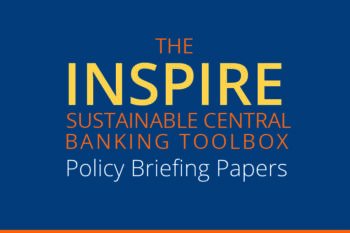
Net zero transition plans can provide an additional dynamic instrument for financial supervisors to assess and address financial risks. This report provides steps towards incorporating transition plans into prudential supervision. Read more

This policy brief (produced for the T20 Summit in Bali, Indonesia) highlights the potential of digital solutions and presents six proposals to enhance digital technologies with implications for the Group of 20 (G20) central banks and supervisors. Read more

This Final Report provides the conclusions of the NGFS-INSPIRE Study Group on Biodiversity and Financial Stability on the scale of the threats from 'biodiversity-related risk' to the global financial system, reviews the actions that central banks, supervisors and other financial actors are already taking in response, identifies policy options for evaluating and mitigating financial risks arising from biodiversity loss and makes recommendations for near-term action. Read more

This report establishes a firm basis for central bank supervisory action in mitigating the risks from the transition to net-zero and proposes a policy change to enable the Bank of England to better identify and reduce transition risk. Its analysis is relevant for other central banks around the world, too. Read more

Policy - 2021
This report is intended as a stocktake of the current context for central bank and financial supervisory action on biodiversity loss. It sets out the state of understanding on the linkages between biodiversity-related risks and financial stability, provides examples of emerging central bank and private finance activity, and identifies key themes, challenges and open questions. Read more

Following the recent establishment of a Joint NGFS-INSPIRE Study Group on Biodiversity and Financial Stability by the Network for Greening the Financial System (NGFS) and INSPIRE, this vision paper sets out the rationale for the Study Group’s work, its initial agenda and its research focus. Read more

This policy report sets out why central banks in the EU need to adopt net-zero strategies, and provides seven concrete recommendations for how they can. Read more

This report examines the role that central banks and financial supervisors could play in supporting the transition to net-zero greenhouse gas emissions, providing recommendations for action across seven areas of central bank and supervisory practice. Read more

Policy - 2020
A toolbox for central banks and financial supervisors of options to align their COVID-19 crisis response measures with climate and sustainability objectives and mitigate potential sustainability risks, updated with new analysis. Read more
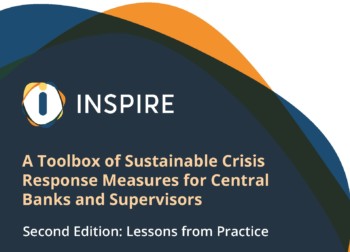
Policy - 2019
This paper charts the rise of central bank and supervisor action on climate change and wider sustainability issues, analyses the key features of the 'new normal' and highlights priority themes for policy and research in the years ahead. Read more

This paper was submitted to the Dasgupta Review on the Economics of Biodiversity – Call for Evidence, an independent global review to assess the economic value of biodiversity and to identify actions that will enhance biodiversity and deliver economic prosperity. Read more

Books
Books - 2022
This book chapter discusses the role that central banks and financial supervisors (CBFSs) can play in scaling up sustainable finance and investment. Read more

This book chapter highlights the opportunities as well as the risks of digital finance in mobilising capital to support sustainable development in emerging markets. Read more

Events
Events - 2022
Biodiversity-related financial risks: Bridging the gap between central banks’ [supervisory] expectations and financial institutions’ realities
Event Type: COP15 UN Biodiversity ConferenceTime to urge economic and financial nature-related risk assessments and scenarios
Event Type: COP15 UN Biodiversity ConferenceEvents - 2020
Addressing Sustainability-related Financial Risks in Asia during the COVID-19 Crisis and beyond: The Role of Monetary and Financial Authorities
Event Type: Online eventA Toolbox of Sustainable Crisis Response Measures for Central Bank and Supervisors | 2nd Edition – Lessons from Practice
Event Type: Online eventA Toolbox for Sustainable Crisis Response Measures for Central Banks and Supervisors
Event Type: Online eventA Toolbox for Sustainable Crisis Response Measures for Central Banks and Supervisors
Event Type: Online eventA Toolbox for Sustainable Crisis Response Measures for Central Banks and Supervisors
Event Type: Online eventNews
News - 2025
This article discusses a policy paper that proposes a new monetary policy tool to address persistent climate-driven inflation. Read more

News - 2024
This commentary from the Centre for Economic Transformation Expertise examines the possibilities for the Bank to achieve a greater balancing of economic stability with climate resilience and environmental stewardship. Read more

This article discusses the reluctance of the US Federal Reserve to take seriously the issue of climate risk. The article... Read more

David Barmes and Simon Dikau explain why intensifying environmental shocks and geopolitical tensions could drive a rethink of inflation forecasting and economic policymaking. Read more
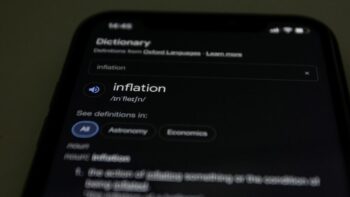
News - 2023
This commentary examines the ‘why, how and what’ of risks to the real economy and financial system deriving from damage to ecosystem services and habitats. Read more

A new global framework for the protection of nature was adopted at COP15, with material targets for 2030. This commentary outlines their particular relevance for the financial sector and its efforts to halt nature loss. Read more

News - 2021
How can we decarbonise international finance to deliver net-zero central banking? Nick Robins, Simon Dikau and Ulrich Volz present a roadmap for greening global finance. Read more


